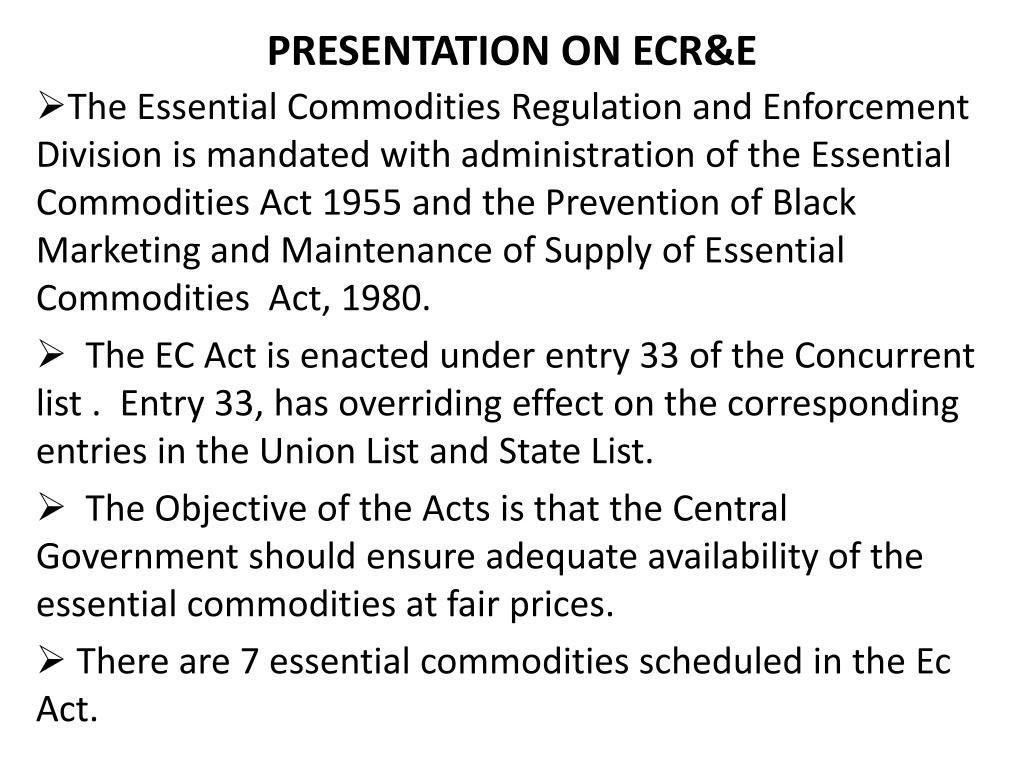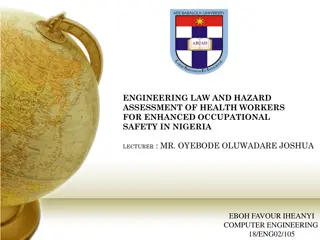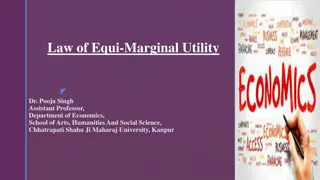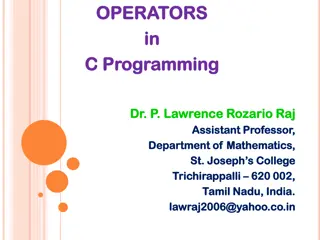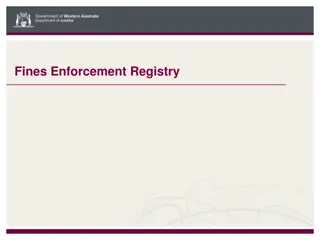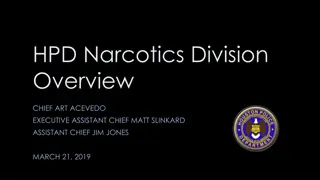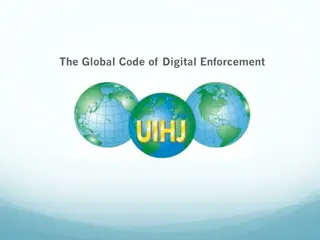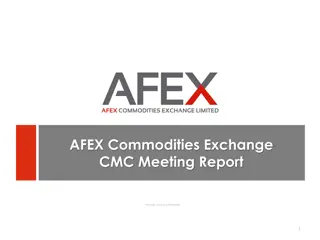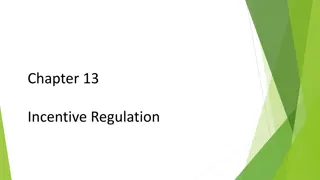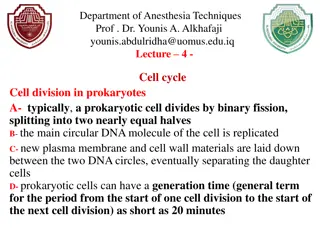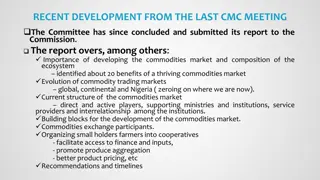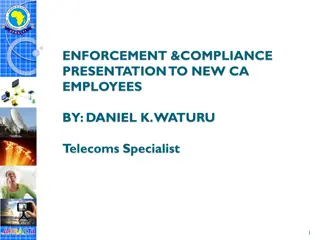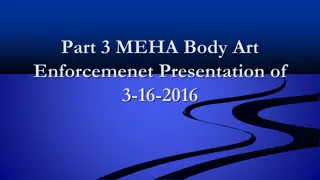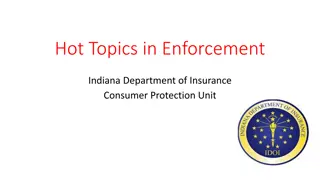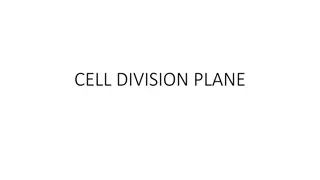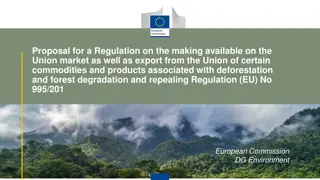Understanding Essential Commodities Regulation & Enforcement Division
The Essential Commodities Regulation and Enforcement Division oversees the administration of the Essential Commodities Act, 1955, and the Prevention of Black Marketing and Maintenance of Supply of Essential Commodities Act, 1980. The Acts aim to ensure the availability of essential commodities at fair prices. The Central Government can regulate various aspects related to essential commodities to safeguard public interest. Powers under the Acts are exercised by different ministries at both Central and State levels. A Chief Ministers' conference in 2001 discussed the implications of the WTO Agreement on Agricultural & Food Management.
Download Presentation

Please find below an Image/Link to download the presentation.
The content on the website is provided AS IS for your information and personal use only. It may not be sold, licensed, or shared on other websites without obtaining consent from the author. Download presentation by click this link. If you encounter any issues during the download, it is possible that the publisher has removed the file from their server.
E N D
Presentation Transcript
PRESENTATION ON ECR&E The Essential Commodities Regulation and Enforcement Division is mandated with administration of the Essential Commodities Act 1955 and the Prevention of Black Marketing and Maintenance of Supply of Essential Commodities Act, 1980. The EC Act is enacted under entry 33 of the Concurrent list . Entry 33, has overriding effect on the corresponding entries in the Union List and State List. The Objective of the Acts is that the Central Government should ensure adequate availability of the essential commodities at fair prices. There are 7 essential commodities scheduled in the Ec Act.
Contd../- The 7 essential commodities are :- 1. Drugs, 2. Fertilisers( , 3. Foodstuffs including edible oils and oilseeds, hank yarn made wholly from cotton, petroleum and petroleum products, raw jute and jute textiles and crop seeds including cotton seeds. As per Section 3, The Central Government can regulate, by way of orders, production or manufacture, supply, distribution, cultivation of food-crops, prices, storage, transport, distribution, disposal, consumption, collecting and disseminating information, asking to sell or withhold a stock, search or examination of premises, any class of commercial or financial transactions relating to foodstuffs which, in the opinion of the authority making the order, are, or, if unregulated, are likely to be, detrimental to the public interest commodity. acquisition, use or etc. of any essential
Contd../- The powers under the EC Act have been exercised by various Central Government Ministries/Departments, apart from the Ministry of Consumer Affairs, Food & Public Distribution (Department of Consumer Affairs). The powers of Central Government have been delegated to the States vide an order dated 09.06.1978 with the direction that States should use these powers. Prior to notification of their decisions, States have to get approval of Central Government.
Contd../- o In the exercise of these powers, various Ministries/ Departments of Government of India as well as the State Governments issue/have issued control orders from time to time (as per Allocation of Business Rules), regulating production, distribution, pricing, storage, and other aspects of trade and commerce in respect of the commodities declared as essential. o These Ministries/Departments Agriculture, Ministry of Finance, Ministry of Chemical and Fertilisers, Ministry of Petroleum and Natural Gas, Ministry of Food Processing Industries, Ministry of Textiles, Ministry of Health, Ministry of Commerce, Ministry of CA, F&PD. are:- Ministry of
Contd../- The States/UTs exercise these powers by way of notifying orders after concurrence of Central Government. A Conference of Chief Ministers on WTO Agreement on Agricultural & Food Management was held on 21.5.2001 to deliberate on removal of restrictions on movement, stocking etc. of food and agricultural products. A committee of certain Central Ministers and Chief Ministers was constituted which recommended to removal of restrictions on trade, movement etc. of all agricultural and to continue the EC Act as umbrella legislation for the Centre and the States to use whenever needed with a progressive dismantling of controls and restrictions.
Contd../- In pursuance of the said decision, various control orders under the said Act pertaining to licencing, stock limits, movement restrictions have been dispensed with in respect of agricultural products vide Gazette Notifications dated 15.2.2002 and 16.6.2003. States can impose any restrictions on the commodities specified in the above orders, like wheat/sugar/ pulses/ edible oils/ edible oilseeds/onions/potatoes/khandsari/ gur, unless Central Government empowers the States by keeping the provisions of the order dated 2002 in abeyance, for the period intended to. In 2006, vide amendment in the schedule of the EC Act, the list of essential commodities was pruned to reduce to 7 while Cotton seeds was added in 2009.
SOME BASIC FEATURES OF THE E.C ACT a. Violation of an order issued under the EC Act is a criminal offence, it may be smuggling, theft, misuse, deviation of procedure, misappropriation, non-maintenance of proper records, violation of stock limits or any condition enumerated in the orders/license of State/Centre. b. The offences under the EC Act, are tried in the Court of law as per Code of Criminal Procedure, 1973. c. At present the offences are bailable and cognizable. d. Penalty under the EC Act may be imprisonment for a term which may extend to seven years and also fine. e. A public servant -as defined under Section 21 of the IPC, or any aggrieved person or any recognised consumer association may report an offence with facts in writing to a court.
Basic features contd../- f. The Central Government u/s 12A may order summary trial, u/s 262 to 265 of the Code, of contravention of any order issued under E.C Act. g. Burden of proof of lawful act lies on the accused. h. Section 6 deals with confiscation of essential commodity by the concerned collector. i. Carriers like animal, vehicle, vessel or other conveyance may be confiscated. j. U/s 6A(2), the Collector may order the seized quantity to be sold at the controlled price, or where no such price is fixed, order the same to be sold by public auction. For foodgrains order may be for distribution through FPS at the price fixed by Central Govt. or by the State Govt.
PREVENTIVE DETENTIONS The provisions of the EC Act were not found adequate to del effectively with malpractices like blackmarketing, hoarding, profiteering, and arrest unjustified rise in prices of essential commodities. To deal with such malpractices and to arrest unjustified rise in prices, the Prevention of Blackmarketing And Maintenance of Supplies of Essential Commodities Act, 1980 was enacted. The Act provides for the preventive detention of persons likely to indulge in the above mentioned malpractices. A person can be detained to prevent him/her from acting in any manner prejudicial to the maintenance of supplies of commodities essential to the community.
BASIC FEATURES OF THE PBMMSEC ACT The Act empowered Central and State Governments Secretaries/Joint Secretaries-is specifically empowered to issue detention orders. Any District Magistrate or Commissioner of Police may exercise the powers. The State to approve the detention order within 12 days of its issue, other it becomes invalid. Within 7 days of its order the State Government to report the facts of the case to Central Government. Grounds of detentions to be supplied to the person, State Government and Central Government. Within 3 weeks from the date detention, the facts with grounds, reports of the case and representation, to be placed before the State Advisory Board.
PBMMSEC contd./- The SAB to submit its report within 7 weeks, from the date of detention, to the appropriate Government. Legal practitioner not allowed in the SAB. If the SAB opines against the detention, the appropriate Government has to revoke the detention order and cause the person released forthwith. Maximum period for which any person may be detained is 6 months from the date of detention. The detention order may be revoked or modified at any earlier time. At present maximum cases are coming from Tamil Nadu followed by Gujarat. Tamil Nadu is having a separate Police Department namely CSCID under the Principal Secretary, D/o Coopn, Food and Consumer Protection.
Actions taken by Central Govt. To empower the States to impose control measures on stocking, trade, prices of Pulses, Edible Oils and Edible oilseeds, the Central Order is valid up to 30.09.2016. To empower the States to impose control measures on stocking, trade, prices of Onions the Central Order is valid up to 02.07.2016. To empower the States to impose control measures on stocking, trade, prices of Sugar, the Central Order is valid up to 28.04.2017. A group of
